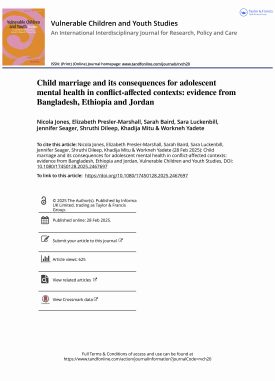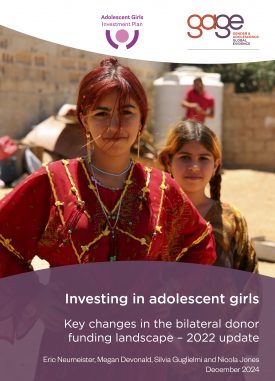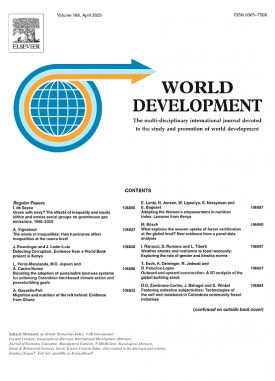Ethiopia has made rapid progress in tackling child marriage and FGM/C over the past 20 years (UNICEF, 2020). Despite this, it is still one of the top five countries globally in terms of absolute numbers of girls who married as children. In addition, it is home to an estimated 25 million girls and women who have experienced FGM/C – the largest absolute number of any country in eastern and southern Africa. This report draws on findings from a mixed-methods baseline assessment that explored the patterning and drivers of child marriage and FGM/C in Afar and Somali regions, to identify possible entry points to fast-track change for girls, their families and communities. The baseline is part of a longitudinal research evaluation that includes three rounds of data collection in 2022, 2024 and 2025.
Suggested citation:
Endale, K., Jones, N., Presler-Marshall, E., Woldehanna, T., Yadete, W., Abdisalam, A., Alemu, A., Gebeyehu, Y., Gezahegne, K., Murha, R., Neumeister, E., Tesfaye, A., Tilahun, K. and Workneh, F. (2022) Exploring the patterning and drivers of FGM/C and child marriage in pastoralist Ethiopia: Baseline report from Afar and Somali regions. Report. London: Gender and Adolescence: Global Evidence. (https://www.gage.odi.org/publication/exploring-the-patterning-and-drivers-of-fgm-c-and-child-marriage-in-pastoralist-ethiopia-baseline-report-from-afar-and-somali-regions/)


